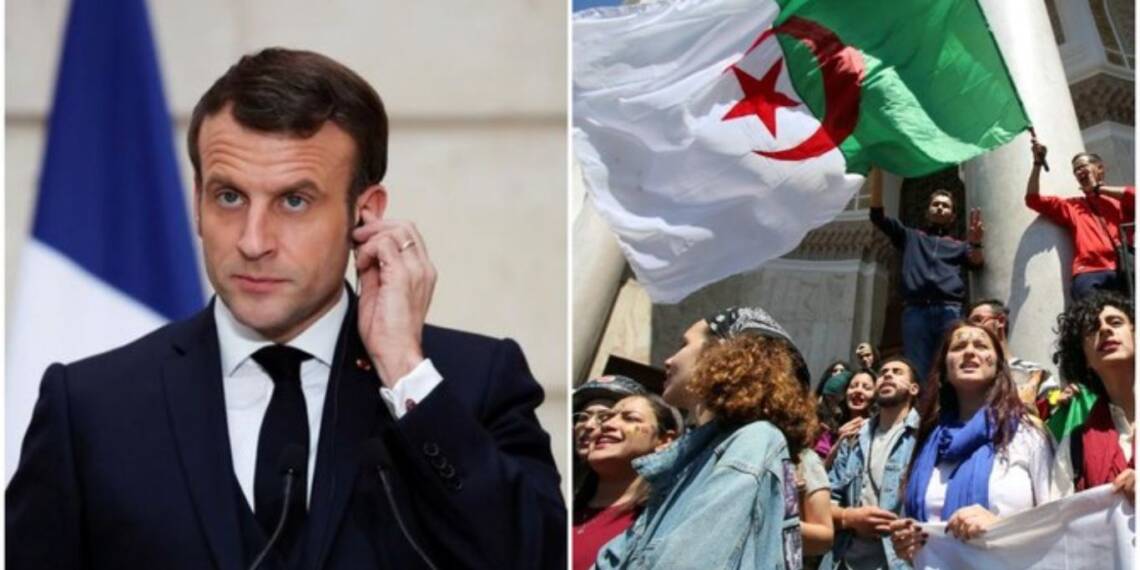The relationship between France and Algeria has reached a new low. Tensions have been running high for some time between the two nations and a recent knife attack carried out by an Algerian national whom French authorities had attempted to deport multiple times has become a trigger point.
After the incident, France threatened to review the 1968 agreement that provides Algerians with privileged immigration rights. The agreement says that unless Algiers agrees to accept back its deported nationals, they will not be deported. The move has further exacerbated tensions. The relations between Algeria and France has already been deterioraring due to a series of diplomatic conflicts.
Recently, French Prime Minister François Bayrou made it clear that Algeria’s refusal to take back deported individuals is unacceptable and called it a “direct attack on the agreements we have with the Algerian authorities.”
He announced a four-to-six-week review of the 1968 agreement. In a warning, he said the advantages the deal offers could be reconsidered if Algeria does not comply with French demands. The list of Algerian nationals whom France seeks to deport remains unknown, but Bayrou confirmed it was “substantial.”
The current flare-up in tensions due to a series of contentious incidents, which include the arrest and expulsion of Algerian political activists from France. Several of them were accused of inciting violence and extremism online.
The situation worsened after Algeria refused to accept deportees such as Boualem Naman. He was arrested for allegedly inciting violence. French officials have accused Algeria of attempting to “humiliate” France by blocking its deportation policies. The Algerian authorities have denied the accusation.
Fissures in Relations
The immediate triggers of the diplomatic crisis are rooted in migration and security concerns, but the broader context of France-Algeria soured relations runs deeper and complex. A major source of friction is France’s recent recognition of Moroccan sovereignty over Western Sahara—a region that Algeria has long fought as the rightful home of an independent Sahrawi state. Algeria reacted with outrage and, in response to the recognition, recalled its ambassador from Paris. Algeria also accused France of acting against international law.
Additionally, Algeria has voiced concerns over what it perceives as a growing anti-Algerian sentiment within France, especially among right-wing leaders and supporters. The French far-right has gained support and recognition in the country for their thoughts on immigration and has asked for tougher immigration policies. It has a disproportionate impact on Algerians. This hardening of French immigration policies and Algeria’s unwillingness to accept deportees has furthered diplomatic tensions with no clear resolution.
Historical Context
Apart from recent political disputes, France and Algeria have also fought due to their shared colonial past. France ruled Algeria for almost 132 years. A brutal war for independence still shapes Algerian identity and its foreign policy.
Algerian authorities have long demanded an official apology from France for its colonial-era atrocities. The demand that successive French governments have failed to accept.
Macron was initially in a mood to recognize the historical wrongdoings in Algeria, but he backtracked on his stance after coming to power. His argument was that France would not engage in the process of “repentance.” This stance only fueled Algerian irritation. It also toughened the perception that France remains unwilling to acknowledge its colonial wrongdoings on the Algerian people.
In 2021, Macron further infuriated tensions by questioning whether Algeria had a historical identity prior to French colonial rule. This remark provoked Algeria to recall its ambassador and close its airspace to French military aircraft.
As diplomatic relations deteriorate, both countries are caught in verbal war. The solution looks distant without meaningful diplomacy. From the Algerian side, President Abdelmadjid Tebboune demanded greater accountability for French atrocities during its colonial rule, whereas the French side saw this as Algerian stubbornness.
The situation looks complicated because of both nations’ internal political dynamics. On the French side, particularly on the far-right, many oppose the idea of repentance for the country’s rule over Algeria. In 2005, the French National Assembly passed a law glorifying French colonialism, indicating that it had no intention of reconsidering aspects of the country’s past.
These opinions are further fueled by rising French opposition to immigration (from Algeria and other Muslim-majority North African countries), and the growing popularity of far-right political parties among French voters. There is little interest across the French political spectrum right now in making any symbolic concessions to Algeria, which would only add to the current domestic woes in France.
The French president’s statement in 2021, which asserted there would be “no repentance nor apologies” for French rule over Algeria, remains unchanged. Meanwhile, in Algeria, the leadership of the country is still carrying scars from the period of colonial domination. The current socio political, and diplomatic relations between the two nations are at a record low, the effects of these tensions will be far reaching for both Algeria and France.







